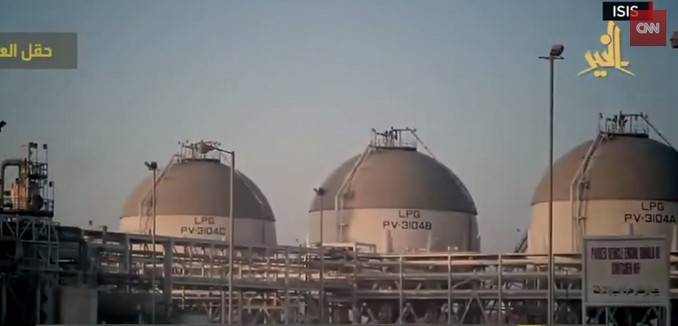In a report released Thursday, NBC revealed that one of the primary sources of revenue for the Islamic State of Iraq and Syria (ISIS) is from the sale of smuggled Iraqi and Syrian oil, often to NATO member Turkey. Turkey’s role in helping finance ISIS’ operations through these purchases raises questions about the country’s commitment to fighting the Islamic state.
Luay Al-Khatteeb, an expert on ISIS’ oil smuggling, was quoted by NBC:
“They deal with a sophisticated network of middle men, some of whom are affiliated with the (Iraqi) oil companies. They have to pay various checkpoints to move around all these oil convoys and specifically to export the oil to Turkey,” Khatteeb said.
“It is estimated that now, after recent territory losses, they can produce, give-or-take, 25,000 bpd, easily getting them about $1.2 million a day, on and off, even if they sell at a discount price of $25-$60 a barrel.”
On Monday, The Daily Beast reported on the scope of Turkish involvement in purchasing the smuggled oil, citing Turkish political analyst Celalettin Yavuz.
The ISIS fuel comes from Syrian oil fields near the militia’s powerbase in Raqqa and is transported in trucks to the region bordering Turkey. The fuel is then brought into the country in plastic barrels or by pipelines.
Yavuz noted that the smugglers often received assistance in Turkish border villages, and that those involved in the illegal trade felt safe enough to conduct their activities in the open. “Pipelines are no longer built during the night, but in broad daylight,” Yavuz said, adding, “sometimes when police are sent to investigate, farmers block the entrance to border villages with their tractors so the authorities cannot enter.” Yavuz further revealed that while ISIS was controlling the illegal diesel trade and making money from it, it was not directly involved in all aspects of the operation, and preferred to employ professional smugglers.
While Yavuz acknowledged that Turkey may be hampered somewhat by ISIS’ holding 49 Turkish citizens hostage, he maintained that Turkey has to do a better job of securing its border, saying “this is Turkish territory. As a sovereign state, you have to do something.”
Mahmut Tanal, an opposition politician, went further in his criticisms:
Tanal, the opposition lawmaker, claims the smuggling itself and the lack of effective countermeasures on the Turkish side are a sign that ISIS enjoys continued support from the Turkish government. “There is cooperation,” he said. “If there wasn’t any, how can you close your eyes to the smuggling like that?” Tanal also stressed that Erdogan and his new prime minister, Ahmet Davutoglu, refused to call ISIS a terrorist organization.
Turkey’s lack of action against ISIS’ oil smuggling fits in well with a larger pattern described by Jonathan Schanzer in Where the Shadiest Players Have a Home, published in the September 2014 issue of The Tower Magazine:
Turkey has very clearly become a safe haven for illicit actors to conduct their business. And its laws for deterring such activity are woefully insufficient. This was made abundantly clear in February 2013, when Ankara was nearly blacklisted by the international body dedicated to combatting terrorism finance, the Financial Action Task Force (FATF).
[Photo: CNN / YouTube ]




